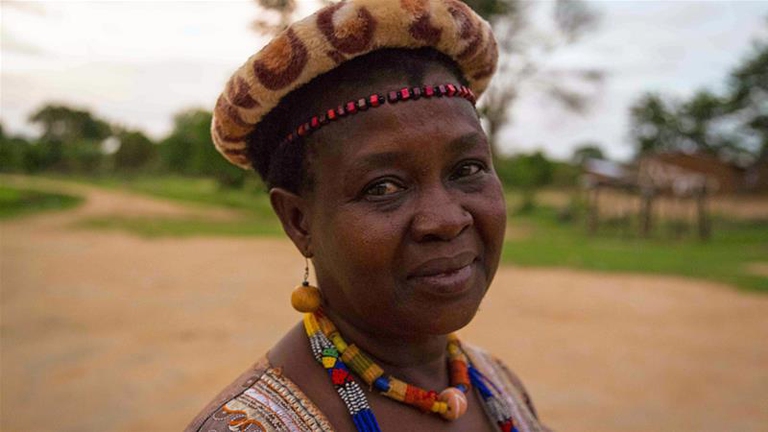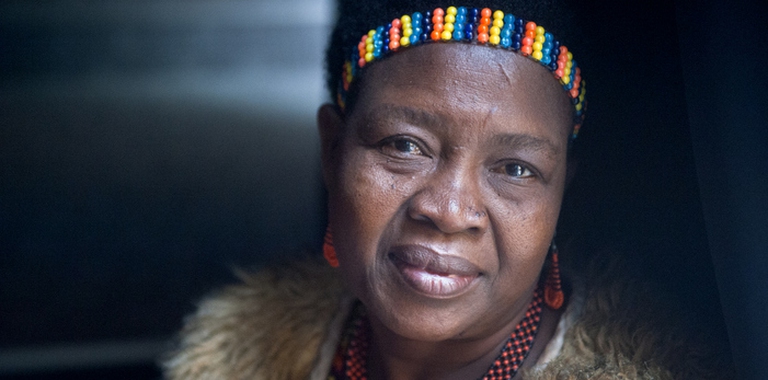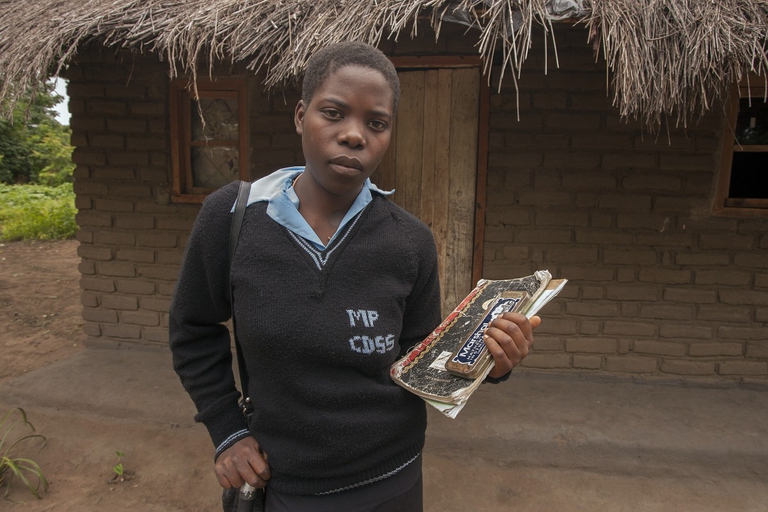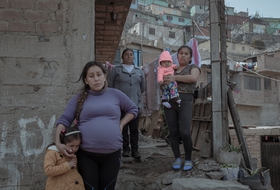
One in three women have suffered physical or sexual violence. With contributions from Europe, Africa, Asia and Latin America, we look at how this shadow pandemic affects every corner of the world.
The “Terminator” of child marriages. This is the nickname given to Theresa Kachindamoto, a tribal chief who annuls child marriages in Malawi to take girls back to school and give them a future.
If you were a girl and lived in Malawi, you would have an even chance of getting married before coming of age. In this case, you would drop school because with all odds you would get pregnant shortly after. In the country with one of the highest rates of child marriage in the world, where 50 per cent of women get married before turning 18, there’s one woman fighting for them, and prevailing. She is Theresa Kachindamoto, a senior tribal chief who is fighting to annull, and prevent, early child marriages in order to take girls back to school. To date she has annulled more than 1,000 marriages and, not for nothing, she has been nicknamed the “Terminator” of child marriages.
Theresa Kachindamoto is a senior chief of the district of Dedza, Malawi, and one of the 300 tribal leaders of the country. These characters in Malawi are guardians of traditions, but they have the right and the power to change or abolish some cultural practices, just like child marriage. And she holds this authority on 551 headmen.
“When I came here I saw a lot of girls – about 12, 13, 14 – having two children,” tells Kachindamoto. “This is why I got angry because they’re too young for having a baby. So that’s why I said no. This is too much. I must do something. If the village headman allows a girl to be married, I dismiss him completely”. Ever since that moment she is on a mission to stop this practice and give the right to education back to girls.
Kachindamoto started her fight by trying to identify the girls who fell victims of this practice, relying on a network of local women, The mother’s group, whose aim is ensuring that the girls who dropped school due to a marriage or a pregnancy resume their education. “We go to door to door to look for the girls,” tells one of the members of the group.
The causes behind early child marriage are often linked in tradition and poverty. In fact, many families force their daughters to get married because they can’t afford basic needs and believe that a future husband will help them.
Because I lacked basic needs from my parents I decided to have a boyfriend and I became pregnant.Glory Mwale – married at 16 anni, pregnant at 16
Kachindamoto’s mission was also made possible thanks to UN Women (the United Nations entity for gender equality and the empowerment of women), which supported the leader in her campaigns and activities, defining early child marriage “a violation of girls’ human rights and a harmful practice for their health, education and integrity, in addition to impacting their future development and increasing the risk of suffering violence”.
Read also: India, ending child marriage by making young girls the agents of change
The actions in the villages of Malawi are working, but the challenge ahead is building a new collective approach to these issues, engaging parents, leaders and girls. This is why Kachindamoto is trying to collaborate with headmen and talk to parents to convince them that education is the most important thing. “Changing attitudes and behaviours takes time, particularly, with male chiefs and parents who benefit from arranged, child and forced marriages. As we speak, parents are withdrawing their girls from schools”.
If you educate your girl, you will have everything in the future.Theresa Kachindamoto
Moreover, in 2017 Malawi took a major step by adopting an amendment that raises the minimum age of marriage from 15 to 18 years. Kachindamoto has thus the authority to enforce the law in case of violations from parents and leaders. “Another important step for us is to sensitize the community, girls and boys on this new amendment, so that they know that it is now illegal to marry off children before the age of 18,” she explained.
Read also: Phumzile Mlambo-Ngcuka. Women are better able to look beyod themselves
Ending early child marriage also means tackling security and health. Indeed, once they get married, many girls are subjected to gender and domestic violence, and those who get pregnant can face complications during pregnancy or while giving birth, causing early deaths that contribute to 20-30 per cent of maternal mortality in the country.
The next, crucial step is supporting the girls in their positive choices, especially when they decide to go back to school. They often are alone, with no family supporting them. Despite the hostility of many community members, there’s an increasing number of girls willing to resume their education. This is why Kachindamoto and local groups are planning to build hostels for girls that are now forced to travel long distance from home up to school.
I think it’s not good to get married early, just because some lack basic need like soap. And others get beaten up. So I’ve decided not to get married until I finish my education, so I can get employed.Benedeta Matison, married at 15, pregnant at 15
Looking at the present – and at the future – Kachinidamoto sees the girls of Dedza as free from early child marriage, and as women of Malawi who can now determine their future. If it’s true that the future depends on women, and no sustainable progress exists without investing in girls, so is that the road towards gender equality starts from a small district of Malawi, where girls are getting back their education, their childhood, and their freedom.
Siamo anche su WhatsApp. Segui il canale ufficiale LifeGate per restare aggiornata, aggiornato sulle ultime notizie e sulle nostre attività.
![]()
Quest'opera è distribuita con Licenza Creative Commons Attribuzione - Non commerciale - Non opere derivate 4.0 Internazionale.
One in three women have suffered physical or sexual violence. With contributions from Europe, Africa, Asia and Latin America, we look at how this shadow pandemic affects every corner of the world.
The Istanbul Convention against gender-based and domestic violence marks its tenth anniversary. We look at what it is, who its signatories are, and what the future might hold.
European Commission President Ursula von der Leyen reminded us of the gravity of violence against women around the world, and of the Istanbul Convention’s utmost importance.
President Erdoğan has pulled Turkey out of the Istanbul Convention, key in the fight against gender violence, claiming that it favours the LGBT community rather than family values.
Violence against women in Peru has increased as a result of Covid-19 lockdowns. 14,912 people were reported missing from January to November 2020, more than half of them minors and 64 per cent women. People have been confined to their homes for months, many forced to endure poor physical, economic and social conditions. A situation that
Joys Estefani Qqueccaño Huamani, 24, disappeared from her rural community in Peru on 9 October. Her family began looking for her independently of the authorities and despite the resistance of relatives of Joys Estefani’s ex-partner Arturo Ccana Condori, 32, charged with committing violence against her on 28 September, eleven days before Joys Estefani disappeared. Photos
Costa Rica celebrated its first same-sex marriage when two women, Alexandra Quiros and Dunia Araya, celebrated their wedding: an “extraordinary moment”.
The pandemic and its restrictions are affecting everyone, without exceptions. However factors like housing, income inequalities, gender, access to technology and working conditions are influencing how people experience the health crisis.
Time magazine’s 100 Women of the Year project sheds light on influential women’s stories, from Amelia Earhart to Greta Thunberg. A selection of some of the greats for International Women’s Day.










